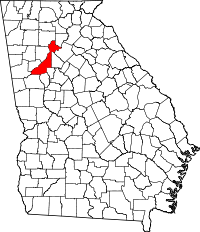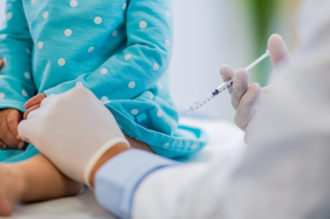By Dr. William Elsea and Jack Bernard
“In public health, you can impact more than one person at a time. The whole society is your patient.”- Dr. Tom Frieden, former director of the CDC
We believe that Georgia’s county public health departments accomplish much more than most taxpayers realize.
The lack of appreciation is not the fault of public health professionals. It’s just inevitable, given that ordinary Georgians have many other things to be concerned about, including the pressures of making a living and raising their families. In any case, this column is an effort to provide some understanding of the role of county health departments, which are funded by local, state and federal sources.

Each of Georgia’s 159 counties has a board of health, often called a BOH. In addition, there are 18 health districts statewide, each with a physician as district director managing operations as CEO of each county board. The Georgia Department of Public Health has oversight responsibilities for these boards, although the boards are legally separate entities. The mission of the Georgia DPH is “to prevent disease, injury and disability; to promote health and well-being; to prepare for and respond to disasters.”
The primary goal of the district health director is to work with each local board to define the health needs of the district’s communities and ensure that they are met in the most cost-efficient manner.
This activity is a continuation of the national effort, begun in the 1970s, to establish health goals for every state and its individual regions, and then to identify the resources needed. In our state, these functions are currently divided between the Georgia Department of Community Health’s Office of Health Planning and the Department of Public Health’s Office of Health Indicators for Planning, which provides valuable data resources on communities.
Community planning not only entails defining and quantifying the population’s health needs, but also ensuring that resources necessary to meet those needs are both adequate and effective. District health directors and boards of health are usually the primary entities performing this vital function.
The Department of Public Health will meet some of those needs directly, as well as work with other public and private providers to assure that the most important needs are met. Therefore, close coordination and support from other departments of the local, state and federal governments, as well as from the private sector, are critical to the success of this mission.

Fulton County is the most populous county in Georgia, with communities ranging across the socioeconomic spectrum. When it comes to public health, Fulton is one of the more active regions, with health officials performing non-traditional services. Working under the local district health director, the local staff and board not only evaluate health programs, but also help assess other community efforts, as well as analyzing data.
They pay special attention to the causes of years of life lost, i.e. why some people die earlier than would normally be expected. In order to support and not duplicate other health providers’ efforts the local BOH has worked directly with them in past years, as follows:
** Jointly managing Grady Hospital’s satellite clinics. In some cases, the staff provides traditional preventive services while Grady provides treatment.
** Providing public mental health and developmental disability services.
** Running a 100-bed alcohol and drug treatment hospital, with ties to the court system and several service providers.
** Coordinating and monitoring public ambulance services, contracting with different companies, each to serve a catchment area, at no cost to Fulton County.
** Running a suicide prevention call center, working with 911 services and the courts.
** Providing various school health services including teen clinics.

Many of the above services are especially good for preventing life years lost — services including drug and alcohol treatment, suicide prevention, and EMS and ambulance services.
Of course, the efforts described above are not the traditional, essential ones that Fulton and other local public health departments also provide. Those include environmental health/regulation; women’s health services; screenings; immunizations; planning for catastrophes; prevention and control of communicable diseases; and health education.
The more community support and funding are provided, including by your local county, the more effective your own county health department will be in meeting the needs of your community.
Jack Bernard, former Georgia Director of Health Planning, is a retired senior vice president with a national health care corporation and a Fayette County Board of Health member. William R. Elsea, M.D., was Fulton County health commissioner, president of the National Association of County and City Health Directors, and a professor at Emory Medical School.

